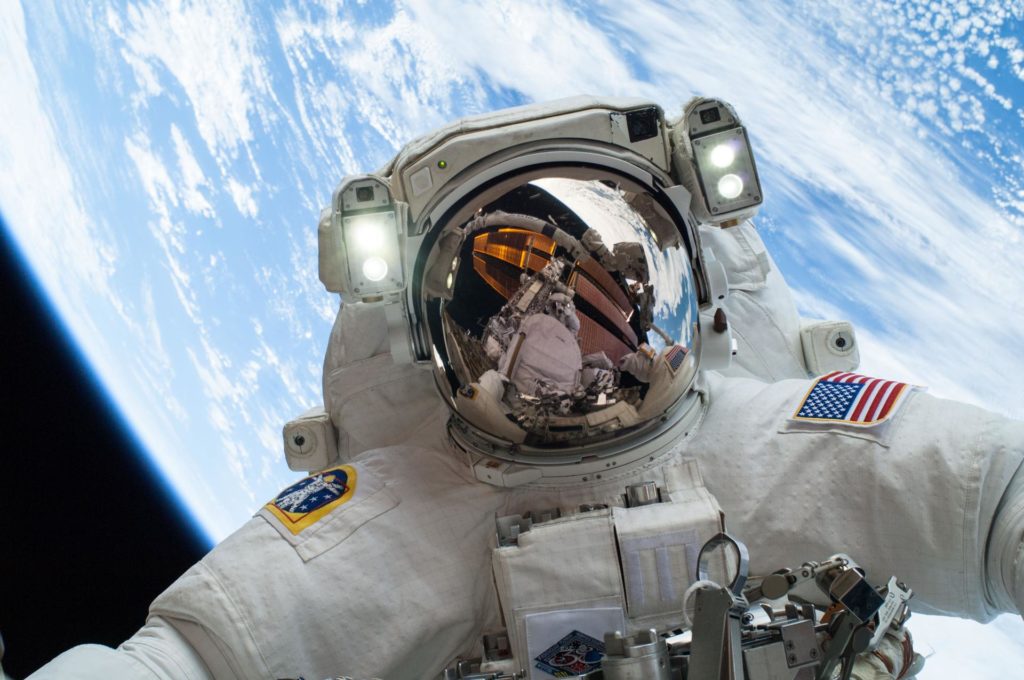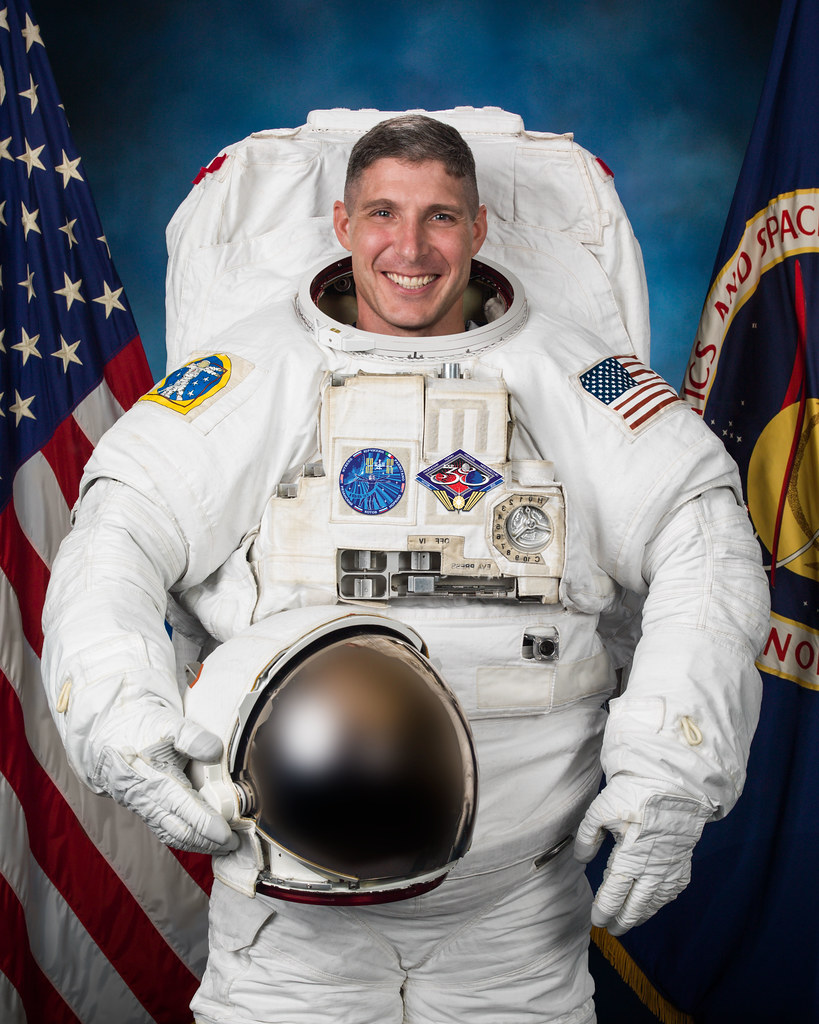
Michael S. Hopkins on a space walk at the International Space Station in 2013 with NASA astronaut Rick Mastracchio.
We all know the age-old debate: “Science and faith don’t mix”. But in 2013, NASA Astronaut Mike Hopkins refused to separate his faith from his pioneering scientific work, when he obtained special permission from the Church to take the Eucharist up into space. For him, the Eucharist was the source of his hope and courage in his work, as well as the crowning glory of his scientific achievements.
Having been received into the Church less than a year before the launch, from the moment he had become a Catholic he had begun planning a way to bring Jesus in the Eucharist with him into space.
In an interview with the National Catholic Register in 2017 (read the full interview here) Mike shared the story of his conversion from being Methodist to being led to the Church by his Catholic family.
“And then, in 2011, I got assigned to a mission to the International Space Station. I was going to go up and spend six months in space, starting in 2013, so you’d think as far as career goals and family, everything was perfect. I’d become an astronaut. I’d been assigned to actually go into space. My family was doing fantastic. And so everything was good, but, for me personally, I felt like something was missing.”
Soon after this, Mike decided to become Catholic. He worked hard to fit faith formation and catechesis around his NASA training in Russia; he only returned to the USA for short stays of 2-3 weeks, and his determination not to delay his conversion until after his space travel enabled him to receive one-on-one formation from his priest Fr Skip Negley until he was confirmed just one year later.
Remarkably, even after being received into the Church, Mike wasn’t satisfied. He knew how important it was to receive the Eucharist regularly, and that in just one year he would be in space, where attending Mass was impossible. But, thanks to God’s grace and the hard work of some dedicated individuals, permission was obtained from the Archdiocese for Mike to take the Eucharist up to space with him.

“I was able to have Communion, basically, every week. There were a couple of times when I received Communion on, I’ll say, special occasions: I did two spacewalks; so on the morning of both of those days, when I went out for the spacewalk, I had Communion. It was really helpful for me to know that Jesus was with me when I went out the hatch into the vacuum of space. And then I received my last Communion on my last day on orbit in the “Cupola,” which is this large window that looks down at the Earth, and that was a very special moment before I came home.”
The Eucharist is not just a metaphor, or an important spiritual activity to take part in just on Sundays. But rather, as Mike Hopkins showed the world, we should lift all of our life moments, small and great alike, to God and unite them to his plan of salvation for us through receiving the Body and Blood of his Son and letting ourselves become bearers of his Son in all we do. The Eucharist is a great act of salvation, thanksgiving, and of very real unity with God. Just as Mike lifted up his work on the ISS, his own ‘small step for man,’ his ‘giant leap for mankind’ to our heavenly Father, and made a huge scientific achievement a huge act of praise and blessing to the Lord, so we must do the same. God wants to be thoroughly involved in your daily life, in your physical and mental experience of the world, in your dreams and desires, as well as in your struggles and challenges.
Image Copyright Holder: NASA, Official portrait of NASA astronaut Mike Hopkins, unmodified, https://creativecommons.org/licenses/by-nc-nd/2.0/
“When I receive Communion … it’s one of these things that puts things in perspective for me. When you’re in orbit, and you’re getting ready to go out on a spacewalk, from an emotional standpoint, you can be very nervous. You can be afraid, if you will. So it helped strengthen my faith, because when I was able to receive the Host and realize that if my faith is strong, I have nothing to be afraid of … that helped. Having that constant reminder when I was on the ISS — things can go wrong in a hurry up there, and the consequences can be quite bad — [I had] my faith, and that constant leaning on Jesus, and realizing that he’s in control, that I’m not in control of this. So when you’re sitting on that rocket getting ready to launch, you say a prayer and get the job done.“
Think of everything that went into preparations for Mike’s journey to space. All the gruelling hours spent on logistical and mathematical problem solving, engineering, as well as physical and mental training for life in space. And don’t forget the emotional factors, excitement, pride, fear… It probably felt a world away from the environment one would normally associate with our faith (Church, liturgy, community prayer). And yet every single little part of that pioneering journey of scientific and technological progress was gathered up and united to the Lord in the moment. Mike, a pioneer at the forefront of scientific exploration and discovery, received the Eucharist in thanksgiving and praise, and out of love for the Person of Christ living his experiences with him.
Everything we do can be sanctified, everything we do can become an offering, a work carried out with, and for, God. And through his gift to us of the Eucharist, God himself dives deep into our lives and leaves nothing untouched by his grace. On Maundy Thursday, we celebrate the Institution of the Eucharist. Let us decide, along with the disciples now fully alive in glory in heaven, to become Eucharistic people, people transformed by this living meal, living Eucharistic lives.
The Eucharist is not just for Sunday. Let Jesus transform your mind today. Let your daily acts become Eucharistic acts. Your love become Eucharistic love. Your faith become Eucharistic faith.
We’ve given him mankind’s first steps into space as astronauts; now let’s decide give him our first steps on earth as saints.